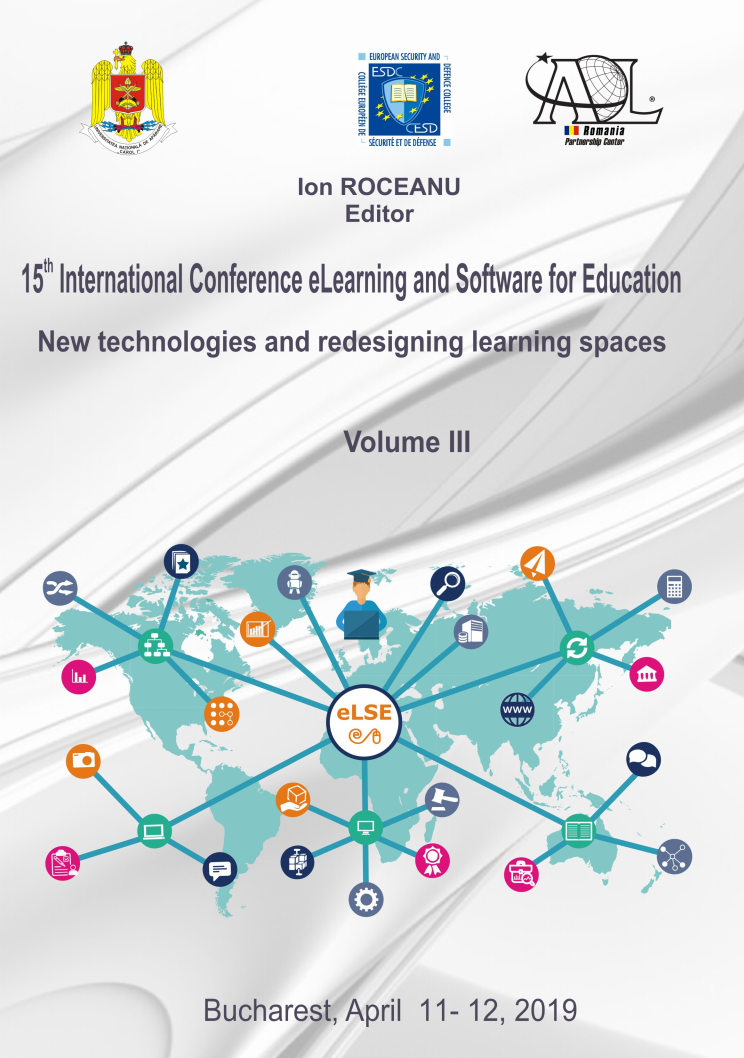Student Perception Regarding the Use of Devices as Learning Tools
Student Perception Regarding the Use of Devices as Learning Tools
Author(s): Bogdan Rusu, Mihaela Brîndușa TudoseSubject(s): Social Sciences, Education, Higher Education
Published by: Carol I National Defence University Publishing House
Keywords: learning; device; students, school results; learning efficiency;
Summary/Abstract: The study bases on qualitative and quantitative data analysis. It highlights students’ perceptions regarding the use of devices as learning instruments. Based on data collected during two focus groups there were identified the most important aspects related to the use of e-resources during all educational process (teaching, learning, assessment) as well as main advantages and disadvantages associate to their use as perceived by the respondents. The importance of these variables was assessed using a survey of 217 respondents that are University students. All variables measured student’s perception on a 5-point Likert scale. Owning a device, learning efficiency (using video and audio recordings), freedom to choose the moment and place for learning activity, the costs and quality of the internet connection were considered independent variables. The dependent variable was student’s scholar performance assessed through their grades. Preliminary analysis revealed significant differences in behaviour among students with different scholarly performance. Therefore, to ensure significant comparison, the analysis was made based on three categories of students: those with grades lower than 7, those with school results very close (up to one point) below bursary threshold and those with bursary (merit). The analysis revealed some interesting conclusions. Most students own a device, and the habit of exploiting it (the efficiency of its usage) has a significant impact upon its owner’s school results. Away from students with low marks, those with grades above 7 perceive that learning associated with the usage of a device is more efficient because it enables them to choose the moment and place of learning. Regarding the costs associated with device-based learning, bursary students perceived it to be more important compared with non-bursary students. All students revealed common perceptions regarding the quality of Internet connectivity, regardless of their grades. The results of this study are useful on two perspectives: scientific (due to discussion on the efficiency of learning instruments) and practical (through the provision of support for teachers and university managers for identifying of the most adequate methods of teaching-learning-assessment that best respond to the needs and particularities of various groups of students).
Journal: Conference proceedings of »eLearning and Software for Education« (eLSE)
- Issue Year: 15/2019
- Issue No: 03
- Page Range: 425-433
- Page Count: 9
- Language: English

